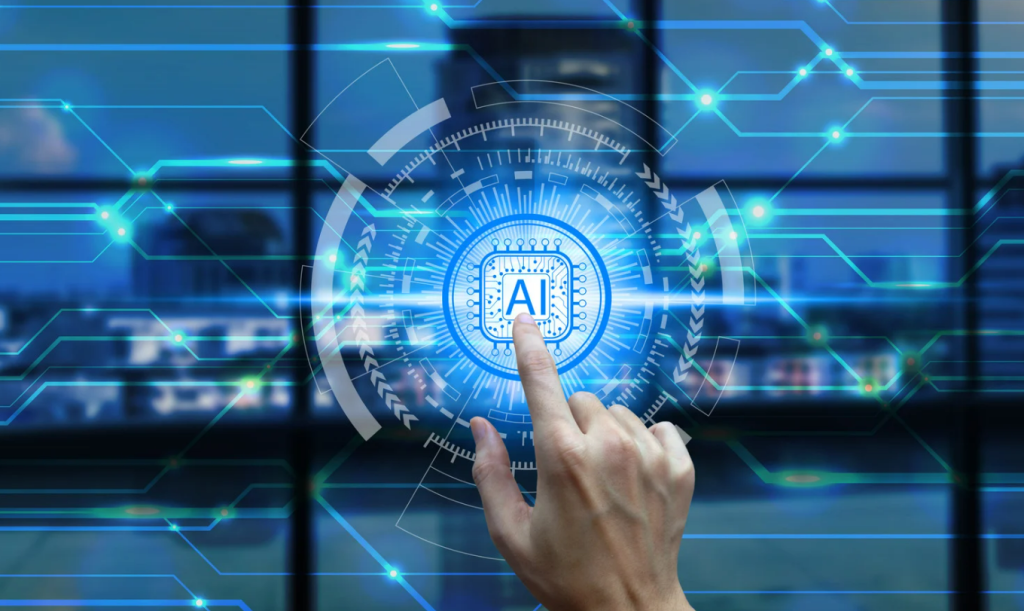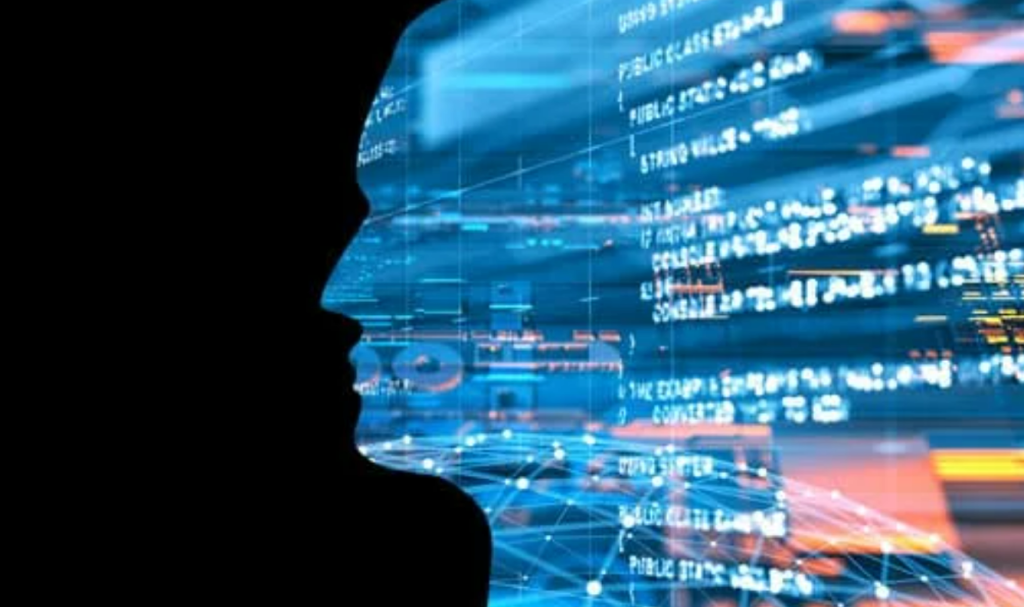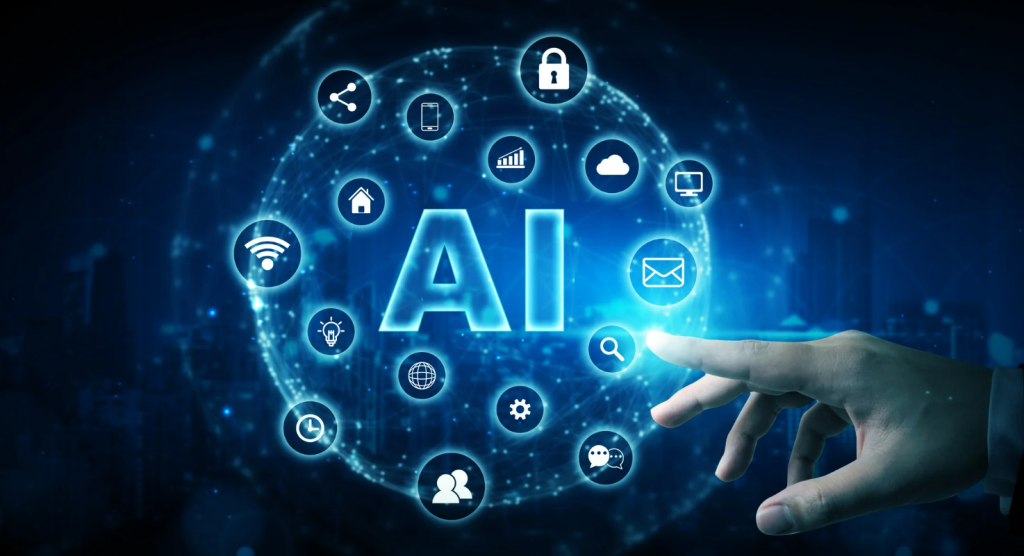Artificial intelligence and blockchain are two of the most significant trends impacting the world today, as the first brings technologies like machine translation, increased computer vision, and natural language processing to the forefront, and the second promotes the use of cryptographic tools and distributed ledgers.
Table of Contents
Blockchain has facilitated the creation of digital currencies like Bitcoin and Ethereum and supported their growth in value, as it can be noticed in the BTC and ETH price chart.
Most explore their potential as two separate technologies, but if combined, they have the potential to transform the digital world and improve social and economic interactions. Together, they can power innovative applications that could benefit both sectors and, beyond them, several other industries that rely on them.
However, this article will focus on how artificial intelligence impacts blockchain technology and try to figure out if it influences the value of crypto assets in any way. Does it have a role in powering the next bear phase?

A Brief Explanation of AI And What It Actually Means
Artificial Intelligence, at its core, refers to machines’ ability to mimic human intelligence. Quite scary, right? To think that machines have reached the level at which they can be easily confounded with humans?
However, the technology isn’t yet at the point at which to mistake it as a human creation, but it brings several improvements in sectors such as blockchain because it implies the development of models and algorithms that allow machines to complete tasks only humans should be able to do.
AI relies on data, computers and machines to imitate humans’ decision-making and problem-solving skills. The computing systems that power neural networks resemble the human brain and use the acquired knowledge to make decisions, predict, and identify patterns.
Based on this, it’s easy to figure out why artificial intelligence could change everything in the blockchain sector. Before listing the ways in which AI impacts blockchain, let’s define the last.
Blockchain is a distributed ledger technology that enables secure and transparent peer-to-peer transactions. It operates as a decentralized database managed by a network of computers (nodes), where each transaction is recorded in a block linked to previous blocks, forming a chain.
Now, let’s have a look at the several ways in which AI impacts blockchain.

AI Can Improve Efficiency and Security
One of the most significant impacts of AI on blockchain is enhancing security and efficiency because blockchain technology inherently provides a high level of security due to its decentralized nature and cryptographic algorithms.
However, AI can further bolster security measures by detecting and preventing fraud or unauthorized access in real-time, which can only benefit blockchain applications. AI-powered algorithms can analyze vast amounts of data to identify patterns indicative of fraudulent activities within blockchain networks.
By continuously monitoring transactions and user behaviors, AI systems can flag suspicious activities promptly, mitigating potential threats before they escalate. Moreover, AI can optimize blockchain processes, improving their efficiency and scalability.
AI algorithms can forecast network congestion through predictive analytics, enabling blockchain platforms to adjust parameters to maintain optimal performance dynamically. This capability is crucial for blockchain networks experiencing high transaction volumes, ensuring seamless operations even during peak times.
AI Facilitates Data Analysis and Decision-Making
Another area where AI influences blockchain is data analysis and decision-making because blockchain platforms generate vast data through recorded transactions and smart contracts. AI algorithms can analyze this data to extract valuable insights, providing stakeholders with valuable information for strategic decision-making.
For instance, in supply chain management, AI algorithms can analyze blockchain data to track the movement of goods, identify inefficiencies, and optimize logistics routes.
Similarly, in financial services, AI-powered analytics can assess transaction patterns recorded on the blockchain to detect potential market trends or anomalies, assisting traders and investors in making informed decisions.
AI Supports Improved Smart Contract Functionality
Smart contracts, self-executing contracts with the terms of the agreement directly written into code, have been a cornerstone of blockchain technology since Ethereum first introduced the solution on the market. AI plays a crucial role in advancing the functionality and capabilities of smart contracts, making them more dynamic and adaptable.
By integrating AI into smart contracts, developers can create contracts that autonomously respond to external events or changing conditions. For example, AI algorithms can analyze real-time market data and adjust contract terms accordingly, such as modifying payment schedules based on fluctuations in currency exchange rates.
Furthermore, AI-powered smart contracts can facilitate more complex transactions, such as decentralized autonomous organizations (DAOs), where decision-making processes are governed by AI algorithms and executed automatically based on predefined rules.

AI Could Address Scalability Challenges
Scalability has been a longstanding challenge for blockchain technology, particularly concerning transaction throughput and network performance. AI offers innovative solutions to address these scalability challenges and unlock the full potential of blockchain.
One approach is to use AI-based sharding techniques, which involve partitioning the blockchain network into smaller, more manageable subsets called shards. AI algorithms can dynamically allocate resources and balance transaction loads across shards to optimize performance and scalability.
Additionally, AI-driven consensus mechanisms can improve the efficiency of consensus protocols, such as proof-of-work or proof-of-stake, by reducing energy consumption and increasing transaction throughput.
By leveraging machine learning algorithms, blockchain networks can adaptively adjust consensus parameters based on network conditions, enhancing scalability without compromising security.
How Blockchain and AI Influence Each Other
The convergence of AI and blockchain represents a paradigm shift in technological innovation, unlocking new possibilities and reshaping industries.
It’s not wrong to say they have a symbiotic relationship that could amplify the strengths of each technology while mitigating their respective limitations, paving the way for transformative advancements in security, scalability, automation, data analytics, and decentralized applications.
As AI continues to evolve and blockchain matures, a collaboration between the two will foster the growth of an ecosystem where trust, transparency, and innovation thrive. By harnessing the power of AI and blockchain in harmony, we embark on a journey towards a more intelligent, decentralized, and equitable future.
The possibilities are limitless in this context, where AI and blockchain are used together, and a new tech revolution is just beginning.



